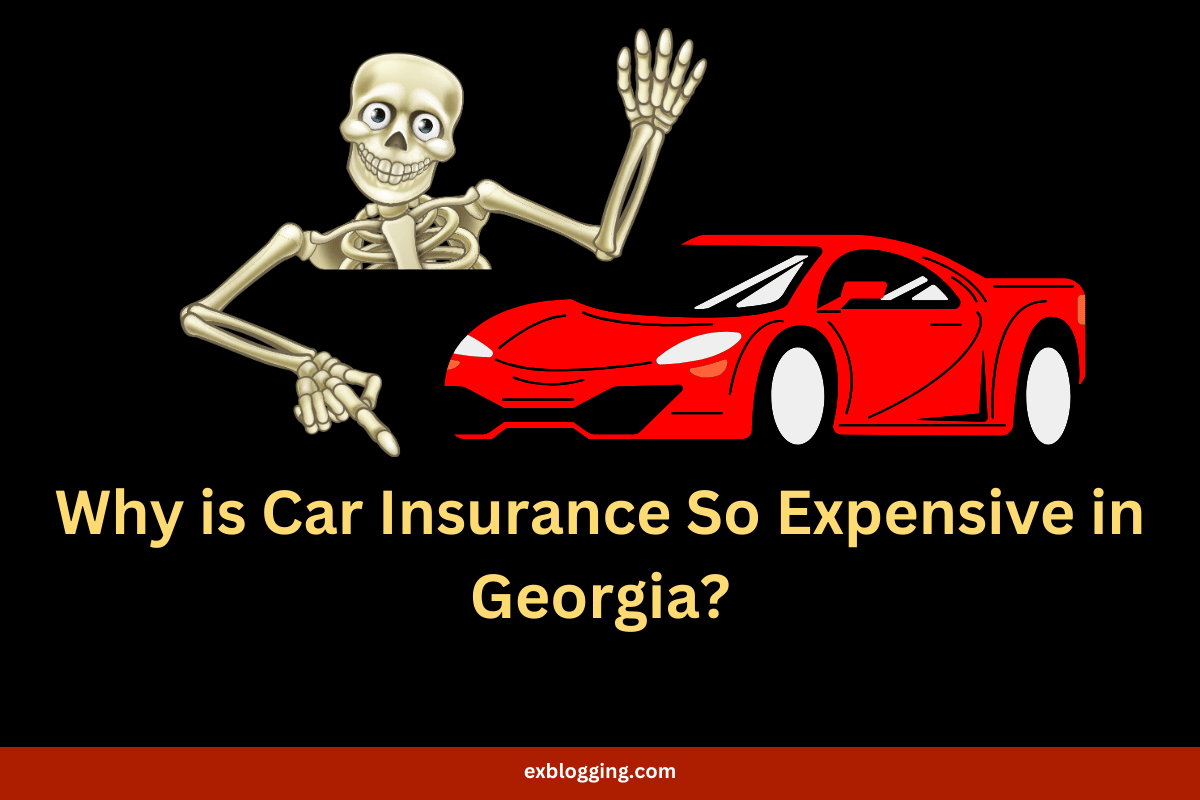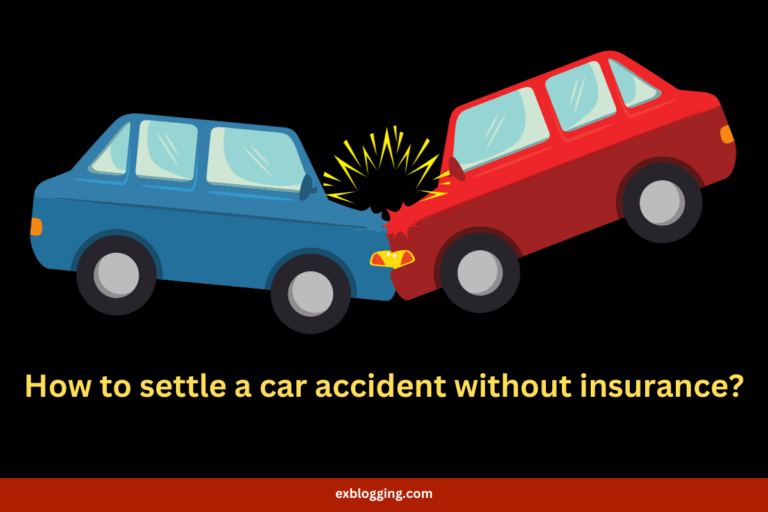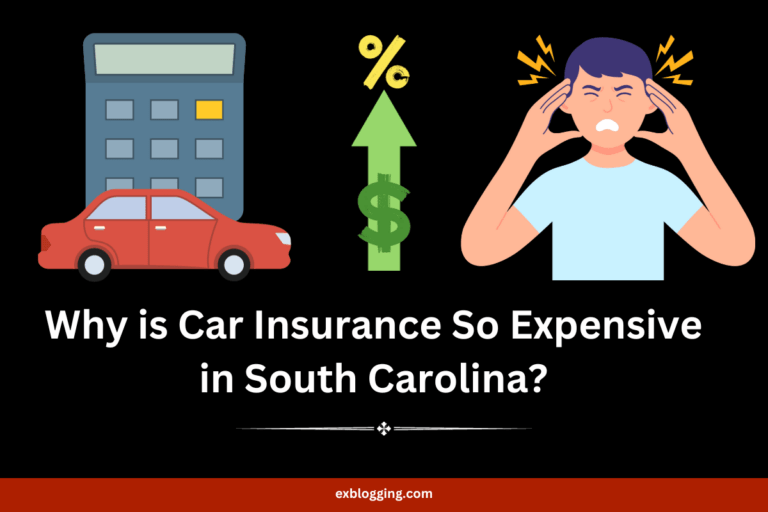Why is Car Insurance So Expensive in Georgia?
Why is Car Insurance So Expensive in Georgia? – Georgia stands out as one of the priciest states when it comes to car insurance, and there are several reasons behind this.
The expenses associated with car repairs and healthcare in Georgia are notably high. This, coupled with the challenges posed by risky roads and unpredictable weather conditions, leads to increased insurance costs. However, there are strategies to cut down on the expenses of car insurance in Georgia—simply take the time to explore your options!
Georgia Car Insurance: Safeguarding Against Uninsured Drivers and Saving Big
In Georgia, around 12% of drivers don’t have enough insurance to cover their medical bills or property damage, even though the law requires minimum liability coverage for all drivers.
To safeguard yourself in case of an accident with an uninsured or underinsured driver, you can consider getting Uninsured/Underinsured Motorist Coverage (UM/UIM). This coverage can help compensate for injuries and damages caused by someone with insufficient coverage.
Getting UM/UIM coverage is also a smart financial move in case of an accident. Depending on the level of protection, it can provide up to $50,000 for bodily injury and $25,000 per person and vehicle for property damage.
If you’re in a collision with an uninsured driver and have UM/UIM coverage, you can file a claim against your own policy to cover medical costs, saving you money in the long run.
To cut down on car insurance costs, bundling it with other policies like home or life insurance can be a money-saving option. Many insurers offer discounts when you combine different types of policies.
Car insurance rates can also vary based on factors like age. Younger drivers often face higher premiums due to statistics showing they are more likely to be in accidents. However, you can lower your car insurance costs by shopping around and comparing quotes from different providers. This allows you to find companies that offer good coverage at affordable prices and understand how various factors may influence your premiums by consulting with a qualified insurance broker.
Georgia’s Insurance Puzzle: Navigating High Costs, Mental Health Gaps, and Affordable Solutions
Georgia’s car insurance premiums are on the higher side, mainly due to the significant impact of healthcare expenses. When an insured driver faces an accident, the responsibility of covering medical bills falls on the auto insurance, contributing to the overall rise in premiums.
Age plays a role in shaping healthcare expenses in Georgia, with a notable difference between a 40-year-old and a 21-year-old, where the former pays an average of $28 more per month for an identical health plan. Additionally, children in Georgia have a flat-rate pricing structure until they reach the age of 15.
Despite Georgians spending less time in hospitals compared to the national average, various factors still lead to elevated healthcare costs. These factors include a lack of competition in the market and a significant number of residents without insurance coverage.
Georgia is actively taking measures to enhance its healthcare system. These efforts include implementing laws against surprise billing and introducing a claims database to bring transparency to service costs. While progress has been made in reducing healthcare expenses, Georgia continues to grapple with healthcare challenges that necessitate practical solutions.
Access to mental health treatment in Georgia is a particular concern, with approximately 25% of uninsured Georgians dealing with mental health or substance use disorders. Bridging this gap could significantly improve access to crucial services, ultimately leading to improved health outcomes and reduced healthcare costs.
A recent report from the Commonwealth Fund highlights that workers in Georgia and other Southern states are dedicating a higher portion of their income to healthcare costs compared to their counterparts in other states. On average, these workers are spending more than 8% of their median income on health insurance premiums.
This ongoing trend raises valid concerns for employers, especially small business owners who often rely on individually paid health plans for their employees. The affordability of providing health insurance is becoming an increasingly urgent issue, prompting the need for sustainable and effective solutions.
Unlocking Georgia’s Car Insurance Mysteries! Navigate Costs, Repairs, and Affordable Coverage
Navigating the intricacies of car insurance rates involves a nuanced consideration of various factors, each playing a role in determining the premiums you pay. From your geographical location and driving history to the specific coverage you choose, these elements collectively shape the financial landscape of auto insurance. However, amid this complexity, there is an agency for consumers to influence and potentially lower their premiums – a power unlocked by exploring quotes from different insurance providers.
Georgia finds itself in a distinctive position, ranking among the top six states with the highest car insurance expenses. A substantial contributor to this distinction is the significant cost associated with car repairs, with an average of $966 recorded in 2016. Modern vehicles, equipped with advanced features, present a double-edged sword. While these features enhance safety, they also make repairs more intricate and expensive. Repair shops are faced with the challenge of staying abreast of evolving vehicle technologies, adding a layer of complexity to the repair process.
Looking into the future, there’s a foreseen rise in repair costs, making the task of comparing insurance prices imperative for conscientious consumers. As the automotive landscape continues to evolve, the importance of understanding and mitigating the impact of repair costs on insurance premiums becomes increasingly pronounced.
Insurance rates are not static; they are subject to change during policy renewals based on several factors. Your driving record and the insurance company you choose can influence these fluctuations. To secure favorable rates, it is advisable to proactively shop around and maintain a clean driving record. The act of seeking quotes from different providers not only helps in understanding the competitive landscape but also empowers you to make informed decisions about your coverage.
Age is a pivotal factor in the realm of insurance rates. Younger drivers often find themselves facing higher premiums compared to their more seasoned counterparts. Additionally, individuals with a history of accidents typically experience heightened premiums, as highlighted in WalletHub’s study. Understanding the role of age and accident history in premium determination provides insights into potential strategies for securing more favorable rates.
Beyond the vehicular realm, the surge in healthcare costs also casts a considerable shadow on auto insurance rates in Georgia. As healthcare expenses continue to climb, insurance companies find themselves grappling with increased payouts for injury claims. The interconnectedness of healthcare and auto insurance underscores the multifaceted nature of the challenges in the insurance landscape.
In the face of these challenges, proactive measures, such as comparing quotes, emerge as effective strategies to unearth the best insurance deals tailored to individual needs. In the dynamic landscape of insurance, where numerous factors converge to shape premiums, informed consumer choices become instrumental in securing not just coverage but also financial prudence. As the insurance industry continues to evolve, the journey toward affordable and comprehensive coverage necessitates an ongoing commitment to understanding, comparison, and adaptability.
Storm-Ready Driving: Your Ultimate Guide to Safer Roads and Lower Insurance Costs in Georgia
Adverse weather conditions not only pose challenges for drivers but can also lead to an unexpected increase in car insurance premiums. This uptick is primarily a response to the surge in insurance claims resulting from storms and other unfavorable events. Insurers find themselves compelled to adjust rates to meet the heightened demand for coverage.
However, there are practical steps one can take to mitigate the impact of such weather-related incidents on both their vehicle and financial well-being. It begins with ensuring that you have the right car insurance coverage in Georgia. Comparing quotes from various insurance providers allows you to make an informed decision. Moreover, inquiring about discounts tailored to reward safe driving habits can further contribute to potential savings.
Enhancing your understanding of the different types of coverage is key. Policies offering comprehensive and collision coverage prove invaluable in covering damages resulting from accidents. Equipping your vehicle with anti-lock brakes and a backup camera not only enhances safety but also aids in averting expensive repairs.
Beyond insurance considerations, proactive measures can significantly contribute to accident prevention. Regular maintenance of your vehicle ensures it remains roadworthy, potentially leading to long-term reductions in insurance costs.
Consider, for instance, preparing for extreme weather events. Installing an emergency kit comprising flashlights, a battery-powered radio, blankets, and a water bottle can prove invaluable during hurricanes or tornadoes. Additionally, stocking up on supplies tailored for winter emergencies, such as snow and ice, is a prudent precaution. Given Georgia’s susceptibility to winter storms, taking these simple yet effective measures now can be instrumental in ensuring the safety and well-being of you and your family when faced with such challenges.
Frequently Asked Questions:
Why are GA insurance rates so high?
Car insurance in Georgia costs a lot because the state lets insurance companies increase rates for specific coverage without needing approval from the state insurance commissioner. In Georgia, you might have to pay around $4,689 each year for complete coverage or $1,997 per year for basic coverage.
What is the average car insurance cost in Georgia?
The average cost of car insurance in Georgia for the basic coverage required by the state is about $639 per year. If you want full coverage, which includes collision and comprehensive insurance, it averages around $2,085 per year.
Is it illegal to drive without insurance in Georgia?
Driving without insurance in Georgia is seen as a misdemeanor. If you’re found guilty, you could face a fine ranging from $200.00 to $1,000.00, a jail term of up to 12 months, or both. Additionally, your license may be suspended for at least 60 days, up to 90 days.
At what age do car insurance rates decrease in Georgia?
Car insurance usually gets cheaper as you get older, especially if you drive safely for three to five years after an accident or ticket. Switching to a less expensive insurance company can also lower your rates. The biggest decrease in car insurance costs for both men and women usually happens between the ages of 18 and 19.
Is it possible to be sent to jail for having an expired tag in Georgia?
Driving without proper registration in Georgia is a serious crime. If you’re found guilty, you could end up in jail and have to pay fines, along with facing other criminal penalties. It’s not just a simple traffic ticket that you can pay off; it can have more severe consequences, including points on your driving record.
Can police tell if you have car insurance in GA?
Absolutely! The police can look into your car insurance, and you never know when they might do it. It’s smart to get car insurance as soon as you can. This doesn’t just lower the risk of a hefty fine or losing your license; it also ensures you’re driving responsibly.
How much is a no-tag ticket in GA?
Not having the right registration (not getting a Georgia tag) costs $135. If you don’t have a county decal for the first time, it’s $30. For the second time, it’s $135. If you have no tag at all, it’s $135.
What happens when your car is not registered in Georgia?
If you don’t register your vehicle within 30 days, you’ll face penalties and fines. New residents need to pay a tag fee, a title fee, and a one-time title tax of 3%. You have to pay the full amount when you title your vehicle.
Is it allowed to drive a car without plates in Georgia?
It’s a misdemeanor to drive a vehicle in Georgia without a valid license plate unless you have a temporary plate from a dealer when buying a new or used vehicle. If you obtain a vehicle from a source other than a dealer, you must register it unless it falls under the International Registration Plan.
Explore More: Discover related Topics for Further Insights and Guidance:
When is a Car a Write Off Insurance?
What is a Supplement in Car Insurance?
What if car insurance doesn’t pay enough?
How to Settle a Car Accident Without Insurance?
How to Describe a Car Accident for Insurance Examples






